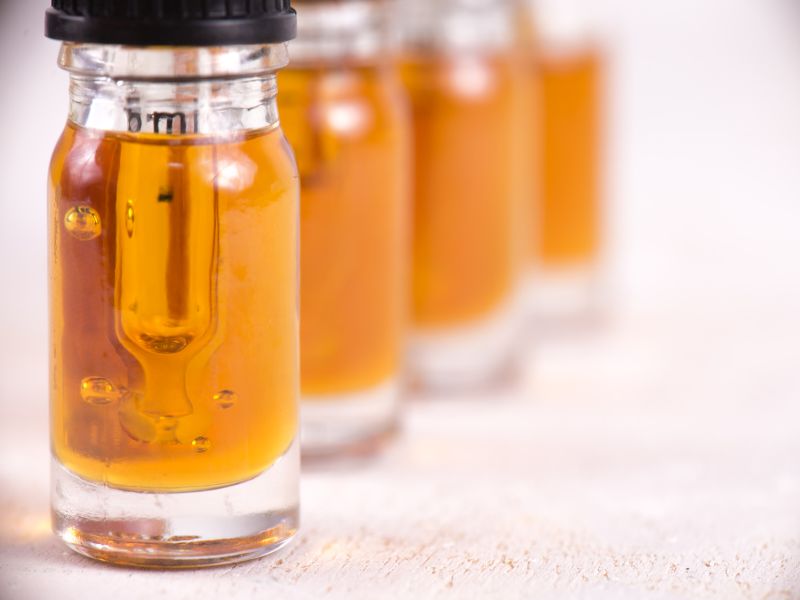Interest in CBD Products Keeps Soaring, but Health Experts Wary

WEDNESDAY, Oct. 23, 2019 (HealthDay News) -- CBD oil, CBD cookies, even CBD-infused massages: CBD (cannabidiol) seems to be everywhere nowadays, and a new study confirms it's one the hottest health trends for Americans.
The research found that each month, as many as 6.4 million Americans head to Google to learn about or buy CBD -- equaling or surpassing interest in almost all other health products or topics.
"CBD has become insanely popular," said study co-author Dr. John Ayers, vice chief of innovation in the Division of Infectious Disease and Global Public Health at the University of California, San Diego (UCSD).
"Three years ago, there was essentially no one searching about CBD online, but now there are an estimated 6.4 million unique searches each month," Ayers said in a university news release.
But with the boom in consumer interest comes real worry from health experts.
That's because many vendors claim -- and some buyers agree -- that CBD is a "cure-all" chemical that can treat a wide range of conditions. Right now, claims are being made for CBD's curative powers against conditions ranging from acne to anxiety, opioid addiction, pain and menstrual problems.
CBD products include droplets, massage oils, gummies and even ice cream, Ayers' team noted.
Much of the claims for CBD remain pure speculation, however, and earlier this year the U.S. Food and Drug Administration opened a public hearing on the issue.
Speaking at the hearing in May, FDA Acting Commissioner Dr. Ned Sharpless said "critical questions remain about the safety" of the products, CNN reported. "While we have seen an explosion of interest in products containing CBD, there is still much that we don't know," he said.
Gauging that "explosion of interest," Ayers and colleagues tracked data on U.S.-based Google searches that mentioned either "CBD" or "cannabidiol" from January 2004 through April 2019. They then projected the volume of searches through to December 2019.
Google inquiries on CBD rose by 125% during 2017, another 160% in 2018, and are predicted to rise another 180% in 2019, according to the study published Oct. 23 in the journal JAMA Network Open.
The increase in CBD searches was seen in all states, ranging from a 211% increase in Oklahoma to a 605% increase in Alabama.
CBD searches outpaced acupuncture by 749%, apple cider vinegar by 517%, meditation by 338%, vaccination by 63%, exercise by 59%, marijuana by 13%, and veganism by 12%, the study found.
However, CBD's new popularity is also cause for concern, one expert said.
"You have a flood of CBD products that are coming from hemp that are going out onto the market, and you've got all sorts of claims being made about those from people who are trying to sell them," Timothy Welty said earlier this year. He's chair of the Department of Clinical Sciences at Drake University's College of Pharmacy and Health Sciences in Des Moines, Iowa.
So far the FDA has approved only one CBD-containing product: Epidiolex, sanctioned by the agency to curb the symptoms of rare forms of epilepsy.
And a review of available data on the effectiveness of CBD, published in August in the journal Mayo Clinic, found little hard evidence to back up claims.
"There are many intriguing findings in preclinical studies that suggest CBD and hemp oil have anti-inflammatory effects and may be helpful with improving sleep and anxiety," said that study's author, Dr. Brent Bauer, director of research for the Mayo Clinic Integrative Medicine program. "But trials in humans are still limited, so it is too early to be definitive about efficacy and safety."
Those sentiments were echoed by Dr. Davey Smith, a physician and chief of Infectious Diseases and Global Public Health at UCSD. "At this time there are no known benefits for taking CBD over-the-counter. CBD is this generation's snake oil, where millions are engaging with the product without evidence of any benefit," he said in the university news release.
"Moreover, some consumers might forgo seeing a physician or taking medications with known, tested and approved therapeutic benefits in favor of CBD and thereby become sicker or succumb to their illness," Smith added.
More information
The U.S. Food and Drug Administration has more on cannabis-derived products.

The news stories provided in Health News and our Health-E News Newsletter are a service of the nationally syndicated HealthDay® news and information company. Stories refer to national trends and breaking health news, and are not necessarily indicative of or always supported by our facility and providers. This information is provided for informational and educational purposes only, and is not intended to be a substitute for medical advice, diagnosis, or treatment.

